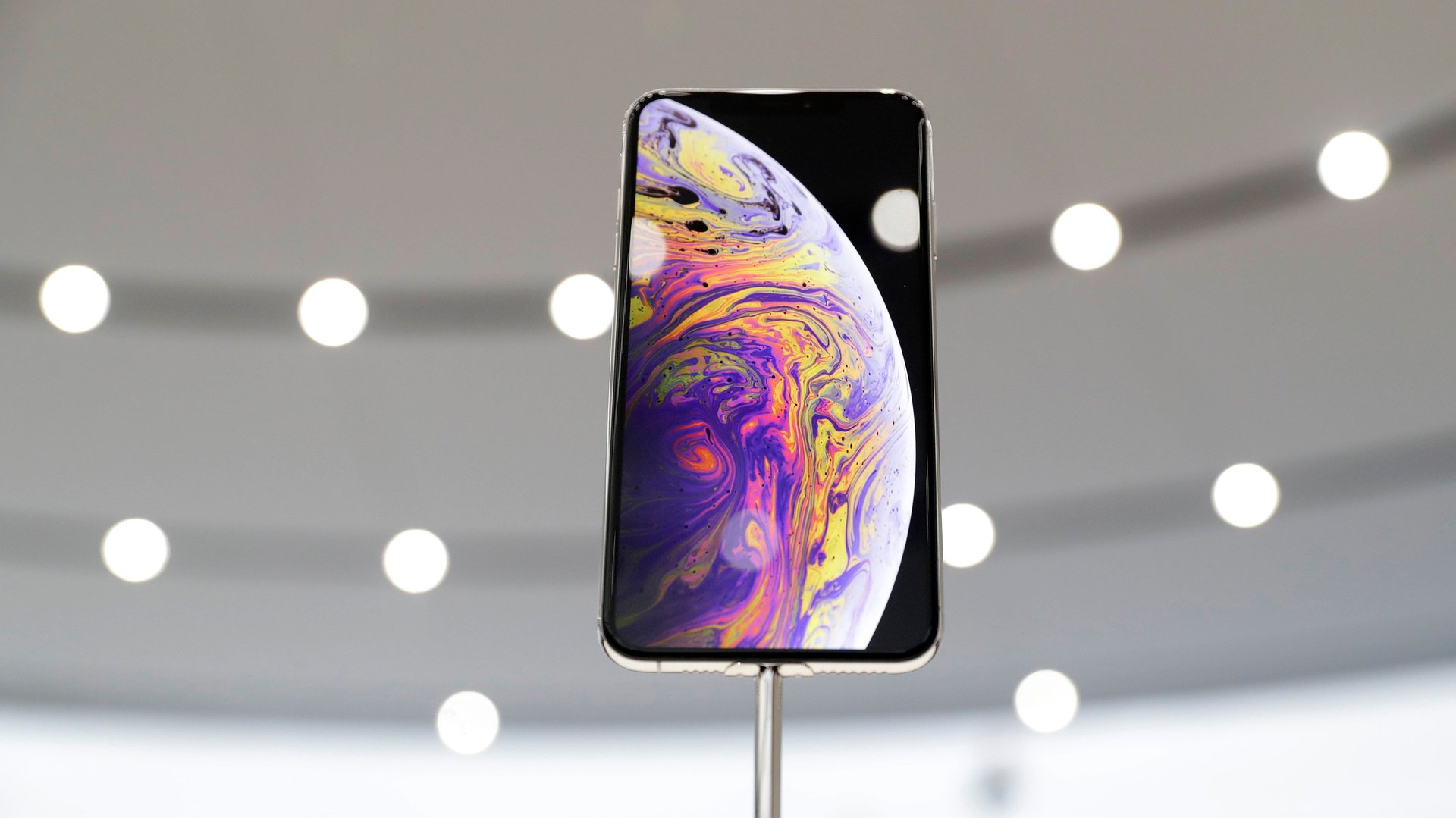If Apple is serious about becoming a services company, it should truly go for it
Apple’s plans for a future beyond iPhone sales are slowly beginning to take shape.


Apple’s plans for a future beyond iPhone sales are slowly beginning to take shape.
At an event at its headquarters in California March 25, the company unveiled a range of new services intended to provide it with more stable, recurring revenue sources, including a credit card, a magazine subscription service called News+, a video-game subscription called Arcade, and original video programming debuting in the fall under the banner of Apple TV+.
Details are still thin on how these services will be priced—News+ will be $10 per month but Apple didn’t offer information on the others—but they seem to be building on the recent successes the company’s services division has had.
In its latest earnings report in January, there were legitimate concerns about the future of its cash cow, the iPhone, which has struggled to expand into burgeoning markets like China and India. But its services business had another banner quarter.
Over the last four quarters, its sales of apps, movies, games, Apple Music, AppleCare, iCloud subscriptions, and Apple Pay fees have generated roughly $39.6 billion for the company, with a 62% margin in the most recent quarter. To put that into perspective, that would land that division on its own at number 79 on the Fortune 500 list, a few spots below Facebook, and above the likes of American Express, Nike, Coca-Cola, McDonald’s, Time Warner, and 21st Century Fox. Without much fanfare, Apple has become one of the largest media and services companies in the world, and there’s likely far more ahead.
Apple has been signing deals with producers, filmmakers, and actors, many of whom were onstage with CEO Tim Cook today, with the goal of launching its TV+ streaming service with exclusive content to compete with the likes of Hulu, Netflix, and Amazon Prime.
Given that Apple has been supremely successful with relatively mediocre services offerings to date—it has essentially the same film, TV, and music offerings all its competitors have; iCloud is overpriced; and Apple Music, even with its reportedly 50 million subscribers, is generally a poor experience—it should be able to leverage whatever content it plans to launch to build a services package that consumers would be excited to subscribe to.
Right now, people buy iCloud because their phones run out of storage space, they buy AppleCare because it seems like a sensible thing to do, and they buy Apple Music for early access to music and forget to cancel (or they’re one of the few people who own a HomePod). But if Apple is serious about shifting its business model away from individual hardware sales (it stopped reporting unit sales this past quarter) and toward more consistent, expected streams of revenue, it should truly go all in on services. It should take a page out of Amazon’s playbook and launch Apple Prime.
Apple launched the iPhone Upgrade Program in 2015 in a move to capture some of its hardware sales away from third parties like cellular carriers. It’s a payment plan though Apple, underwritten by Citizens Bank, where customers pay a monthly fee to get the latest smartphone each year, along with AppleCare. It’s a decent deal if you’re sort of person who needs the newest phone each year. Given that it also offers subscriptions for iCloud storage and Apple Music, and will soon have ones for video and news, it’s not wildly unreasonable to think that Apple would consider selling a single subscription package for everything it owns, including its new content.
Amazon Prime started out as an annual subscription for discounted expedited shipping, but has since grown into a massive program that gives customers deals at Whole Foods, free streaming on Amazon Prime Video and Prime Music, free e-books and magazines, free photo storage, as well as free shipping. The shipping may have been why many people signed up for the now $119-a-year service, but it’s likely the award-winning programs and other benefits are what keep them coming back. Prime has a renewal rate of over 90%, better even than discount retailer Costco’s member program, Bloomberg reports.
Apple could offer something similar, bundling together its new shows and news subscription with access to music, games, storage, AppleCare, and even phones, in one monthly package. A service like this likely wouldn’t come cheap (Apple is a luxury brand after all). Apple’s iPhone upgrade program ranges from about $37 to over $60 a month; Apple Music costs $10, and iCloud can cost from $1 up to $10. Lump on top of that AppleCare, and a video service (most of its competitors’ are around $10), and the new subscriptions in the pipeline, and Apple Prime could easily run anywhere from $75 to $100 per month. (But perhaps if it’s purchased with Apple’s new credit card, there could be some additional cash-back benefits.)
Even so, Apple has the brand loyalty to pull something like this off. Instead of worrying about holiday sales, down quarters, and having a massive supply of phones ready each September, Apple could shift more of its customers to a monthly subscription that will give it reliable revenue, and offer customers a discount on paying for services and devices separately. It’s working for Amazon, which has over 100 million Prime subscribers, and others have pushed similar ideas for other companies, like Disney. It’s a model that’s worked in IT sales as well—companies like HP, Microsoft, IBM, and even Apple itself all offer managed services for massive corporate customers.
If Apple wants to get serious about generating a nice flow of recurring revenue, and deepening the ties between its customers and its ecosystem, it should definitely consider offering all of its services bundled together. Today it laid further groundwork for doing that.